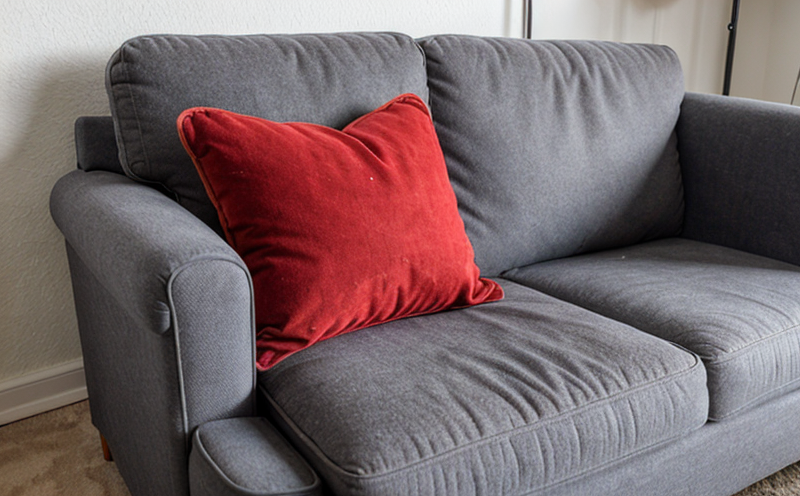ASTM D2261 Tearing Strength Testing of Upholstery Fabrics
In the realm of furniture testing, durability is paramount. The ASTM D2261 Tearing Strength Test for Upholstery Fabrics is a critical measurement that ensures fabrics used in upholstery are robust and capable of withstanding everyday wear and tear.
The test assesses the strength of fabric tears, which can be indicative of potential failure points under stress. This method helps manufacturers identify materials that may not withstand the rigors of home use or commercial applications effectively. The ASTM D2261 standard provides a standardized procedure for testing the tearing resistance of upholstery fabrics.
The test involves subjecting a specimen cut from the fabric to a controlled tear, typically using a pre-determined method to ensure consistency across samples. This process helps in understanding how the fabric will behave under stress and whether it meets the required performance criteria set by the manufacturer or industry standards.
Understanding the importance of this test is crucial for quality managers, compliance officers, R&D engineers, and procurement professionals involved in furniture design and manufacturing. By ensuring that fabrics meet the specified tearing strength requirements, these professionals can guarantee the longevity and reliability of their products.
The ASTM D2261 method uses a specialized tensile tester to apply controlled forces to the fabric, simulating real-world tear conditions. This ensures that the test results are both accurate and reproducible, allowing for consistent quality control across production batches.
For manufacturers looking to innovate or improve their products, ASTM D2261 testing can provide valuable insights into the performance of new fabrics. By adhering to this standard, they ensure that their products meet industry expectations and customer demands. This test is particularly important for those in the furniture sector where durability plays a significant role.
Why It Matters
The tearing strength test of upholstery fabrics is essential because it directly impacts the longevity and safety of furniture products. Furniture that fails to meet the required tearing strength standards can lead to early fabric failure, compromising both the aesthetic appeal and structural integrity of the product.
From a consumer perspective, fabrics that do not withstand normal wear and tear can result in unsightly rips or tears, leading to potential discomfort or injury. For manufacturers, non-compliance with these standards could result in costly returns, recalls, and damage to brand reputation.
The ASTM D2261 test is a key quality assurance tool that helps prevent such issues by ensuring that fabrics are robust enough to withstand the stresses they will encounter during use. This not only enhances product performance but also contributes to environmental sustainability by reducing waste associated with premature fabric failure.
Moreover, adhering to this standard demonstrates a commitment to excellence and consumer safety, which is crucial for maintaining trust in the market. Compliance with such industry standards can also open doors to new markets and partnerships, as it shows that the manufacturer meets international quality benchmarks.
Applied Standards
| Standard | Description |
|---|---|
| ASTM D2261-18 | This standard specifies the procedure for determining the tearing strength of upholstery fabrics. It includes a detailed description of the test method, specimen preparation, and data analysis. |
International Acceptance and Recognition
- The ASTM D2261 standard is widely accepted in the furniture industry worldwide.
- This test method is recognized by major international standards bodies such as ISO, IEC, and EN for its accuracy and reliability.
- Many global manufacturers and suppliers use this standard to ensure their products meet international quality benchmarks.





